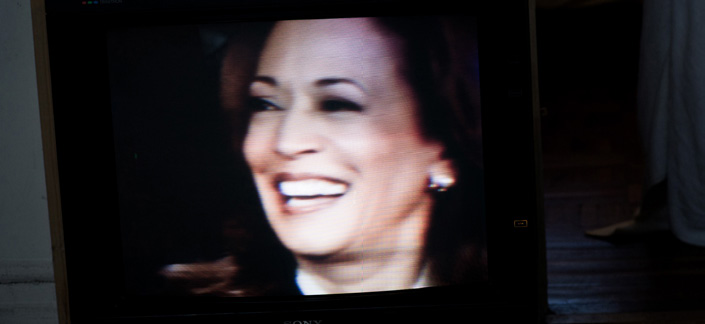
By David Brooks
The evolution of American culture occurs at a remarkable pace. Each decade witnesses transformations in values, trends, and societal norms — shifting the entire atmosphere of national existence. When observing a presidential campaign, it’s worthwhile to pose the question: What year is it? What values and sentiments are prevalent in America today? Which candidate aligns best with the current climate, and which one appears out of sync with the prevailing spirit of the times?
At this moment, it appears that Kamala Harris is riding the wave of an emerging cultural transition, with favorable cultural winds propelling her forward. Conversely, Donald Trump is starting to feel those winds blow against him.
Trump made his mark in the 1970s and 1980s, a period characterized by the culture of egoism, often referred to as the Me Decade by Tom Wolfe. It was a time defined by unrestrained self-focus — self-worth, self-expression, and self-advertisement. Particularly in the ’80s, Manhattan was abuzz with a blatant admiration for wealth, ostentation, and the lifestyles of the affluent.
Trump epitomized the excesses of that decade in a cartoonish fashion. The Trump Tower on Fifth Avenue opened its doors on February 14, 1983, showcasing its extravagance. His 1987 book “The Art of the Deal” was a brash celebration of wealth. In that cultural context, his gilded self-obsession elevated him to celebrity status.
Then came the 1990s, an era often seen as the conclusion of history — marked by the end of the Cold War and the dismantling of apartheid. This decade, filled with significant events but minimal conflict, saw Trump lagging behind, present but not in the spotlight.
Next was the 2000s, dominated by the war on terror. Trump’s show “The Apprentice” debuted in 2004, garnering popularity but failing to shape the national discourse. With real wars underway, the brave individuals serving in Iraq and Afghanistan represented a heroism that overshadowed the casino entrepreneur’s superficial bravado.
However, the 2010s ushered in an era of outrage. On May 15, 2011, protests in Spain led by “los indignados” — the outraged — ignited a wave of dissatisfaction with the ruling class. A subsequent moral upheaval swept through the Western world and Latin America, as both marginalized right-wing groups (like the rural white working class) and left-wing movements (like Black Lives Matter) clamored for new representation and power. Discontent with established authority soared, and social trust plummeted.
In this context, Trump appeared ideally suited. Contemptuous of the Manhattan elite, he had nurtured a lifetime of anti-establishment grievances that resonated with the working class’s deep-seated disdain. He orchestrated a hostile takeover of the Republican Party and later infiltrated the federal government. The emphasis here is on “hostile,” as animosity became fashionable across both sides of the political spectrum.
Then, a survey released in 2018 by the group More in Common introduced the concept of “the exhausted majority.” A significant number of individuals grew weary of the relentless bitterness and drama surrounding Trump and culture wars, desiring to move past it all. In a closely contended election, Joe Biden triumphed, vowing to restore decency and normalcy.
What ensued was a conflict between the forces of outrage and those of exhaustion. Trump remains influential within the GOP because his supporters still yearn for a figure willing to challenge the ruling class aggressively. Recently, I wrote a column exploring the critical strengths of American populism — the prevalent resentment toward the educated elite and skepticism of institutions. Nevertheless, an increasing number of individuals are exhausted by the ongoing tribalism, hostility, and conflict, even within Republican circles.
Harris experienced a polling surge upon becoming the nominee, in part due to her projection of a fresh emotional tone — emphasizing joy in politics, as frequently mentioned by Democrats during their convention. During the debate on Tuesday, she effectively translated that emotional pivot into both her campaign and governance style.
In the debate, I felt Harris struggled to articulate her vision for the next four years. However, she excelled in countering the cultural values represented by Trump.
She reiterated her call for change: It’s time to move forward. While this rallying cry may lack persuasive power on policy grounds, her agenda is a narrower interpretation of Biden’s unfinished goals. Biden has been trailblazing a redefined industrial policy that signifies a fundamental evolution in the role of government in the American economy. Harris refrains from discussing the breadth of her administration’s initiatives.
Nonetheless, Harris was highly effective in portraying herself as a champion of cultural transformation. Her poised demeanor stands in stark contrast to Trump’s sour demeanor, showcasing a confident strength. Her expression of “I care about you” sharply contrasts with his self-centered “I care about me.” Her optimism and compassion stand out against the backdrop of a decade marked by bitterness and resentment.
Some may dismiss this as mere vibes, but I disagree. It’s a matter of culture. What kind of people do we aspire to be? What values and behaviors do we wish to see embodied by our national leaders? Who should shape the social climate of our nation? As Daniel Patrick Moynihan famously articulated, culture holds paramount importance, yet government can influence culture.
Cultural change follows a rhythm, with episodes of public unrest giving way to periods of introspection. World War I transitioned into the liberated hedonism of the flappers in the 1920s. World War II yielded to the domesticity of the 1950s. The turbulence of the late 1960s faded into the mellowed spirit of the mid-1970s. People can only be in upheaval for so long. As we grow wearier of the catastrophic narratives surrounding American life, Trump appears not merely monstrous but, more critically, stale.
We remain an exhausted and beleaguered nation, yet if history serves as a reference, a new cultural moment is approaching beyond the horizon. I believe Harris’s joyful strength offers a glimpse into the zeitgeist of the future. This spirit alone may not secure her victory, but it certainly will lend her support.
